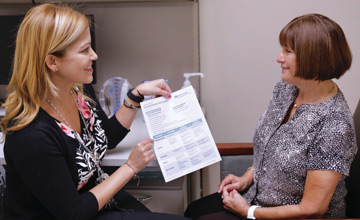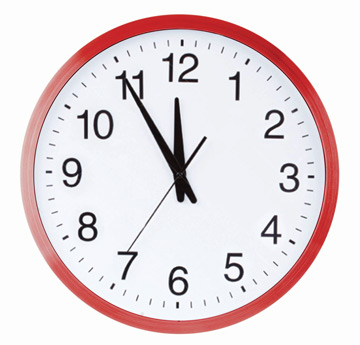No food or drink past midnight is slowly giving way to carbo-loading up to 2 hours before surgery. Fasting past midnight has been an unwritten Ordinance of the OR for almost 75 years. We can trace its origins to an obstetrician and cardiologist named Curtis Mendelson, who in 1946 reported in an influential study that you could avoid aspiration during general anesthesia for delivery by restricting oral intake during labor.
“Pre-op fasting is a concept that’s been ingrained in surgeons and anesthesiologists since medical school,” says Gregg Nelson, MD, PhD, FRCSC, a professor at the Tom Baker Cancer Centre in Calgary, Alberta, Canada. “But in reality, the practice isn’t supported by evidence. In fact, evidence shows it may result in patient harm.”
A fasting state — when food has been completely digested and stored — occurs as soon as 4 hours after eating and can lead to post-op insulin resistance, hyperglycemia and dehydration. On the other hand, patients who carbohydrate load by drinking 50 g of maltodextrin reconstituted in a clear liquid or pre-surgery complex-carbohydrate drinks up to 2 hours before surgery are more physically prepared to endure the rigors of surgery.
Their blood glucose and blood pressure levels are stable, and they’re less likely to experience insulin resistance from the stress of surgery. They’ll also be in less pain and at lower risk of suffering post-op infections — factors that impact patient satisfaction and lead to better outcomes. You also can’t ignore the importance of improving the patient experience. Patients who consume a formulated drink before arriving for surgery feel fuller and hydrated, and therefore more comfortable and potentially less anxious.
It’s important to know which type of fluids patients should consume in the hours leading up to surgery. “Many surgical professionals believe sports drinks or apple and cranberry juices are effective options,” says Dr. Nelson. “But those drinks don’t contain enough of the complex carbohydrates needed to optimize patients for surgery. The take-home message is that drinks must have at least 50 g of complex carbohydrate in order to elicit the proper response.”
Letting patients drink clear fluids before surgery seems like a no-brainer, especially because most anesthesia guidelines now recommend that patients stop eating solid foods 6 hours before surgery, but be permitted to drink clear fluids up until 2 hours before procedures begin. (The American Society of Anesthesiologists issued those directives in updated guidelines published in 2017.) Still, involve your anesthesia team, who understandably might still heed Dr. Mendelson’s warning, when adding carbohydrate-rich drinks to your pre-op protocols.
“Aspiration is their biggest fear when they put patients under sedation or use a general anesthetic,” says Bryan Collier, DO, FACS, a professor of surgery and director of surgical nutrition at the Virginia Tech Carilion School of Medicine in Roanoke, Va. “However, the literature shows drinking glucose and water 2 hours before anesthesia empties from the stomachs of patients without gastric emptying issues.”
.svg?sfvrsn=be606e78_3)


.svg?sfvrsn=56b2f850_5)